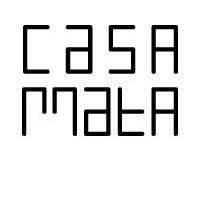October 7, 2011
3 Human Rights Groups Call for Release of Liu Xiaobo
Three prominent human rights groups called on China on Friday to release the imprisoned dissident writer Liu Xiaobo, who won the Nobel Peace Prize a year ago, and to end the house arrest of his wife, Liu Xia.
Since the announcement of his Nobel Peace Prize on October 8 2010, Mr. Liu has seldom been permitted to talk to his family, and only at one occation has he been allowed to leave the prison where he is being held in Liaoning Province, according to the three human rights groups, Human Rights Watch, Amnesty International and China Human Rights Defenders, that now call for his release. Ms. Liu has not been charged with any crime but she has been incarcerated in their home in Beijing.
“The only thing that would force the government to reassess the decision is if there was some strong international pressure on China in this case, but the pressure is not there,” according to Human Rights Watch researcher Nicholas Bequelin. “There’s no incentive for the government to revisit this decision. We’re talking about a climate where standing defiantly against the West is reaping more political awards than collaborating.”
Mr. Liu, writer and longtime human rights defender was detained on Dec. 8, 2008, for playing a leading role in drafting Charter 08, which demands gradual political and legal reforms based on constitutional principles. The document was circulated via e-mail and was signed by thousands of Chinese. However Mr. Liu still remained largely unknown inside the country, partly due to government censorship. On Dec. 29, 2009, a court in Beijing sentenced Mr. Liu to 11 years in prison for inciting subversion of the state.
Security agents outside the Lius’ Beijing apartment building prevented reporters from seeing Ms. Liu when the Nobel committee announced its decision. She was also prevented from going to Oslo to collect the prize in December, and it was placed on an empty chair instead. This was the first time since 1936, when the Nazi government in Germany barred the writer Carl von Ossietzky from collecting the prize, that no winner or representative had come to the ceremony. The Nobel committee announced on Friday that it was giving this year’s Peace Prize to two women from Liberia and one from Yemen for their promotion of democracy and gender equality.
A statement released by Amnesty International on Friday said that Ms. Liu had been almost entirely prevented from contacting anyone outside her apartment since February. She had a brief online chat at the time with a friend during which Ms. Liu “said that she was feeling miserable, was unable to go out and that her whole family was being held hostage,” Amnesty International said.
Ms. Liu’s mother lives in the same compound; she is the only person permitted to see Ms. Liu, and only on occasion. According to unofficial reports, Ms. Liu has been able to meet with Mr. Liu twice since January, Amnesty International said.
Mr. Liu’s Nobel Peace Prize has not taken the edge of the Chinese government’s severe measures against dissenters. The country’s leaders, anxious about recent Internet calls for protests modeled after the revolutions in the Middle East, have carried out a broad crackdown on liberal intellectuals.
One of Mr. Liu’s brothers, Liu Xiaoxuan, told Agence France-Presse this week that he had visited Mr. Liu in prison on Sept. 28 and that he “was looking very well.” Liu Xiaobo was allowed to travel to Dalian on Sept. 19 to attend a memorial service for his father, the brother said.
Human rights advocates said the Chinese government had allowed Mr. Liu’s brother to leak news of his recent visit to the prison in order to demonstrate leniency on the eve of the anniversary of Mr. Liu’s winning the Nobel Peace Prize. But fundamentally, the advocates said, nothing has changed regarding Mr. Liu or his wife.
In its winter 2010 issue, Asia Literary Review published a poem called “You Wait for Me With Dust” that Mr. Liu had written for his wife.
The final lines were:
Just let the dust bury you altogether
Just let yourself fall asleep in the dust
Until I return
And you come awake
Wiping the dust from your skin and your soul
What a miracle — back from the dead
The quotes in this news article are from The New York Times, October 7.










